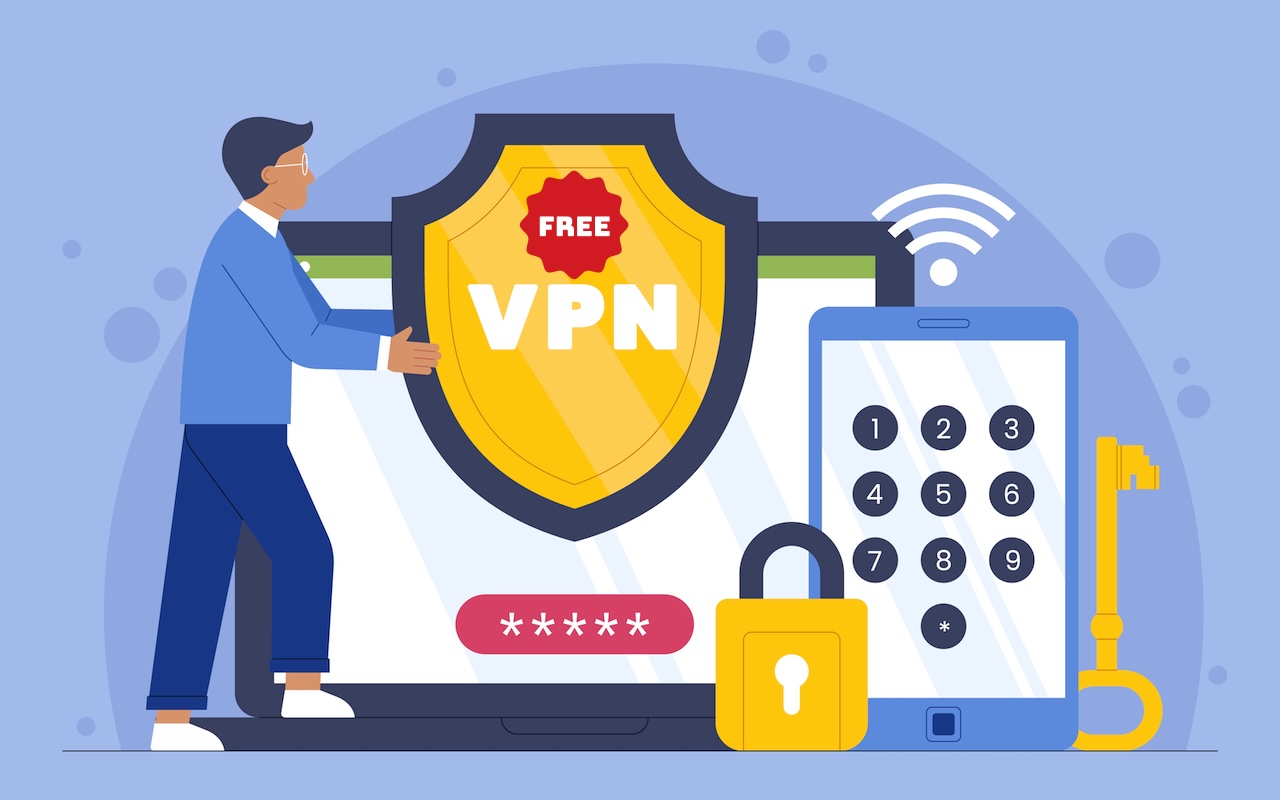
VPNs (Virtual Private Networks) have become essential tools for safeguarding online privacy, bypassing internet censorship, and ensuring secure browsing. With cybersecurity threats and data privacy concerns on the rise, many people are turning to VPNs for protecting their internet sessions.
Recent reports suggest that over 30% of internet users globally rely on VPN services for safer browsing. In Canada and the U.S., adoption rates are steadily increasing, especially among younger users. This rising popularity of VPN highlights the growing awareness of digital privacy and the need for tools that safeguard online activity. However, not everyone is ready to invest in a paid plan, which raises the question: Are free VPNs safe to use?
The short answer is: Yes, some free VPNs such as Astro VPN can be safe and useful. According to a recent study by Security.org, about 28% of users rely on free VPN options. Let’s explore what free VPNs are, their benefits and limitations for delivering reliable services without cost.
What Are Free VPNs?
Free VPNs work much like their paid counterparts: they encrypt your internet connection, hide your IP address, and help you access online content securely. The key difference is that they offer these services without a subscription fee. For casual users who only need occasional privacy protection or basic access to geo-restricted websites, free VPNs can be an appealing solution.
Many VPN providers offer free plans as part of a broader strategy. For some, it’s a freemium model, where the free version introduces users to the service and encourages them to upgrade to paid plans that unlock more features, faster speeds, or unlimited data. Free plans also help providers build trust and visibility in a crowded market by letting people experience their product firsthand before making a financial commitment. In addition, offering free tiers allows companies to expand their reach globally, attracting users who may not otherwise consider using a VPN.
The Promises vs. Reality of Free VPNs
Most free VPNs promise to deliver privacy, security, and unlimited access. While some deliver well on these promises, others may come with trade-offs like limited data, reduced speed, or fewer server options. The reality is that free VPNs are often best suited for light use but they can still be safe and effective if you pick providers with a good reputation.
Benefits of Using Free VPNs
Instead of focusing on drawbacks, it’s worth noting where free VPNs shine:
- Cost-Effective Security: They give you encryption and privacy without spending a dime.
- Bypassing Restrictions: Free VPNs often allow access to region-blocked websites and apps.
- Beginner-Friendly: Many free VPNs are easy to install and use, making them great for first-timers.
- Testing Before Paying: Free plans allow you to experience VPN features before committing to a premium version.
When Free VPNs Are a Good Fit
Free VPNs are ideal if:
- You’re a casual user who only needs occasional secure browsing.
- You want to test out VPN features before upgrading to a paid plan.
- You need basic geo-unblocking for web browsing.
For heavy streaming, torrenting, or professional work, a paid VPN might be a better long-term solution. However, free VPNs can absolutely do the job for everyday light tasks.
How to Choose a Free VPN Wisely
Not all free VPNs are created equal, and selecting the right one can make the difference between gaining real online privacy and exposing your data to risk. When evaluating free VPN providers, start by reviewing their privacy policies. A trustworthy service will be transparent about how it handles your information and clearly state that it does not log or sell your data. It’s also important to consider the provider’s reputation and user feedback. Well-known VPNs with positive reviews and an established track record are generally safer than unknown apps that may have hidden motives.
Another factor to check is the security features offered. Even in a free plan, a reliable VPN should provide strong encryption standards such as AES-256 and support modern protocols like WireGuard or OpenVPN. Look for additional safeguards like a kill switch, DNS leak protection, or multi-device support, which can add layers of protection. Finally, be realistic about data limits and speed restrictions. A reputable free VPN will be upfront about these limitations, allowing you to decide whether the plan fits your needs or if upgrading later makes sense.
Conclusion
Are free VPNs safe to use? Yes, if you choose a reputable provider. Free VPNs can deliver a secure, convenient, and cost-free way to protect your digital life. While free VPNs may come with limits on data or speed, they’re still valuable tools for anyone looking to browse safely and explore the internet with greater freedom. By prioritizing transparency, credibility, and strong encryption, you can find a provider that protects your privacy without hidden risks.
Featured Image by Freepik.
Share this post
Leave a comment
All comments are moderated. Spammy and bot submitted comments are deleted. Please submit the comments that are helpful to others, and we'll approve your comments. A comment that includes outbound link will only be approved if the content is relevant to the topic, and has some value to our readers.

Comments (0)
No comment